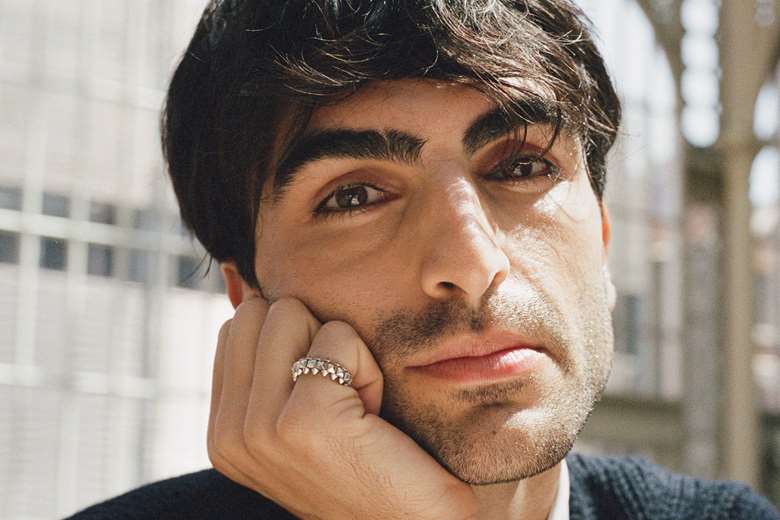Mental Health in Opera - countertenor Cameron Shahbazi: 'Whenever I find myself spiralling or in a deep sadness, there is usually an equally deep disconnect somewhere'
Thursday, February 6, 2025
The Iranian-Canadian countertenor shares lessons from encountering ego and adversity, and the inspiration behind the Warsaw Sessions

I’m not a mental health expert – I’ve made mistakes and will make many more. But here, I share observations, experiences, and approaches to my profession as it relates to overcoming mental health challenges.
I was born and raised in Canada, near Toronto, in 1992. My parents are Iranian and immigrated to Canada in 1979. It was not a musical household, yet music has always been a guiding light in my life. I was introduced to opera in my teens and dreamed of pursuing a career in the artform since I was 18. I began my studies as a baritone and came into my countertenor voice in my twenties. I have been based in Amsterdam for the last nine years.
My career started gaining momentum as I was finishing my studies in Amsterdam. By this point, I had experienced competitions and auditions – a necessary and initially dreaded step. While sometimes the stakes were low, the pressure was deeply felt as my insecurities initially sabotaged performances, before even singing.
I eventually considered auditions a psychological game rather than a vocal showcase. My challenge in these unnatural situations was to be grounded in the moment for what it was, and to tap into a flow state of pure creation and fantasy, rather than trying to impress ‘them’ (the panel) and be what I thought ‘they’ wanted.
Crippling insecurities are inevitable if we view performance as a moment of judgment. This can result in making oneself small or overcompensate for the nerves by puffing one’s ego – I’m more guilty of the latter. The truth is that the audition is simply an opportunity to connect and share who you are. This is much easier said than done.
To overcome my nerves, I developed a 30-second ritual that remains essential to this day. Maintaining eye contact with myself in the mirror – softly smiling – I would say out loud how proud I am of myself and for simply showing up, despite any additional hurdles that only I would know. I then take a few good breaths, blow a kiss, and go on stage. I find this pep talk calming and reassures my inner child that it’s safe to come out and play. So even if I couldn’t see who I was singing to, I felt grounded in a connection to my ‘self’.
Connection is fundamental to my instrument and sense of purpose. Vocally, I am only capable of creating something worthwhile when my imagination, my heart and my body work symbiotically. Whenever I find myself spiralling or in a deep sadness, there is usually an equally deep disconnect somewhere.
As the world was reemerging from the pandemic, I found myself navigating uncharted emotional terrain in my personal life. This heartbreak manifested in the temporary loss of my voice. I turned to journaling and craved medicinal music to soothe my wounds.
Together with my friend and collaborator, Sophia Muñoz, we worked to bring my voice back by leaning into the universality of pain. Rumi says, ‘These pains you feel are messengers. Listen to them’. This work evolved into a recital programme of reinterpreted familiar and unfamiliar tunes bound together like an intimate diary.
I feel community in re-arranged music. Somehow, performing this music is like singing in a chorus of the many voices that reinterpreted the songs before us. Community and connection are healing, and my inner child felt safe to come out and be vulnerable. We entitled this programme the Warsaw Sessions, as it was the generous people in Poland that embraced our project and enabled it to be filmed. This provided an experimental visual element to the sonic tapestry of Baroque gems, folksongs and Iranian melodies – all of which were re-arranged.
Out of what felt like a loss came connection, community and cross-cultural collaboration. This helped me reconnect with myself in such an honest way. Sophia and I now share the Warsaw Sessions both digitally and live in concert with the goal of fostering empathy and understanding, reminding listeners of the shared human experiences that unite us all.
This programme is not about me but rather healing the self through connecting more profoundly with the world around us. In such fast moving, often superficial world, I believe my audience craves something real – something honest.
Despite the challenges to my mental health, I find profound fulfilment in my chosen life and profession as it enables the opportunity to be courageous and overcome the endless obstacles.
It enables the opportunity to create a safe space for communal feeling and healing. It creates the opportunity to connect. ON
This article originally appeared in the Spring 2025 issue of Opera Now. Never miss an issue – subscribe today






